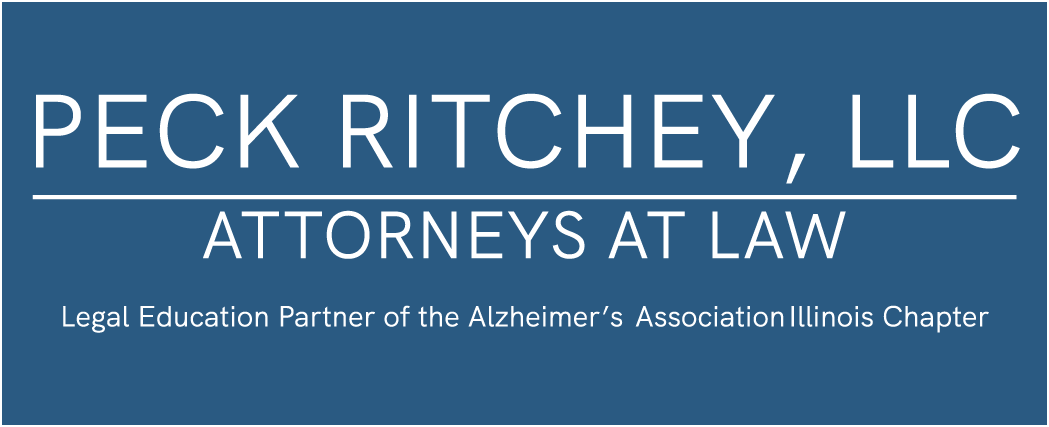 When it is time to plan how your estate will be divided after you die, one of the most important parts of your legacy is your home. It may be the “family homestead” passed down from the ancestors or a brand-new residence you purchased after years of renting. Either way, the house you live in is special.
When it is time to plan how your estate will be divided after you die, one of the most important parts of your legacy is your home. It may be the “family homestead” passed down from the ancestors or a brand-new residence you purchased after years of renting. Either way, the house you live in is special.
It also represents a valuable portion of your children’s inheritance, so you want to be sure they get the full value of your home without worrying about estate taxes and other fees. If you leave your property to your heirs in a will, it will be subject to probate, and that means the courts will be involved. Illinois has an estate tax on estates over $4 million. The federal government’s estate tax applies to estates over $12,060,000 in 2022. Your home’s value is assessed at the time of your death.
If you want to be certain your home is passed to your children with the minimum of legal fuss and economic cost to them, you should start planning now, while you can still explain your wishes to your attorney and any trustees that may need to be advised.
Types of Property Transfer
There are several ways to transfer property without leaving it in a will. You should discuss these alternatives with an estate-planning attorney before making any final decisions. One of your considerations should be whether you want to continue living in the home before you die or if you want to move out and transfer the property immediately.
- If you want to remain in the property, you can transfer it as a gift. Gifting the property allows your heirs to take ownership immediately. Illinois has no gift tax, but the federal government does. You should consult your attorney and financial planner before taking this step.
- If you want your children to take the property immediately after your death, you can put them on the deed as joint tenants with right of survivorship. The advantages of this method are that anyone named on the deed has equal and undivided ownership of the property. When any owner dies, the full ownership passes automatically to the surviving individuals on the deed.
- To be certain the property goes to your intended beneficiary, you can consult an estate planning attorney and create a living trust. Also called a “revocable trust,” this document places your assets in a trust over which you have control during your lifetime. When you die, a named trustee takes on the duty of distributing your assets. This avoids the need to probate a will and lets your home be given to your heirs immediately.
One benefit of a trust is that you can leave property to minor children since the trustee can be instructed to hold the house for the children until they reach adulthood.
Why Do I Need to Do All This?
 What you may not realize is that when a will is probated, your heirs may not get everything you wanted them to. Even if a piece of property is listed in a will (a “specific bequest”), there are people in line ahead of the heirs to get the decedent’s property. Under Illinois law, when an estate is probated, some claims get paid ahead of others. If some property must be liquidated to pay these claims, then that must be done.
What you may not realize is that when a will is probated, your heirs may not get everything you wanted them to. Even if a piece of property is listed in a will (a “specific bequest”), there are people in line ahead of the heirs to get the decedent’s property. Under Illinois law, when an estate is probated, some claims get paid ahead of others. If some property must be liquidated to pay these claims, then that must be done.
There are seven “classes” or groups that must be paid in a specific order when an estate is probated. If there are insufficient funds to pay them in full the payments will be pro rata. They are:
- Burial and funeral expenses, costs of administering the estate, and any custodial care claims for end-of-life care.
- Surviving spouse and child awards, which by law must be a minimum of $20,000 for a surviving spouse and $10,000 per child.
- Any money still owed to the U.S. government.
- Any money still owed to the decedent’s employees, capped at $800 per employee, and money owed for any final illness.
- Any property held in trust by the decedent that was comingled with the decedent’s assets or wrongfully converted by the decedent.
- Any money still owed to state or local governments.
- All other claims of other creditors.
You can avoid this legal tangle by contacting an estate planning attorney ahead of time, creating trusts or other instruments, and designating someone to see that your property is distributed and your bills are paid without the courts getting involved.
Contact Us
At Peck Ritchey, LLC, we want to help you settle your property distribution while you can still tell everyone exactly what you want. If you want your children to have your home free and clear, we can help set up a trust to make sure that happens.
If it’s time to make plans for the distribution of your assets when you pass, call the Chicago estate planning attorneys of Peck Ritchey, LLC at (312) 201-0900 to make an appointment with one of our knowledgeable estate planning attorneys. We will make sure everything is done exactly the way you want.
Related Posts:
